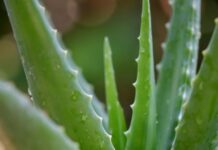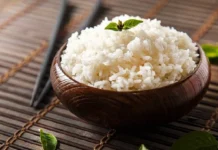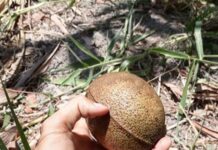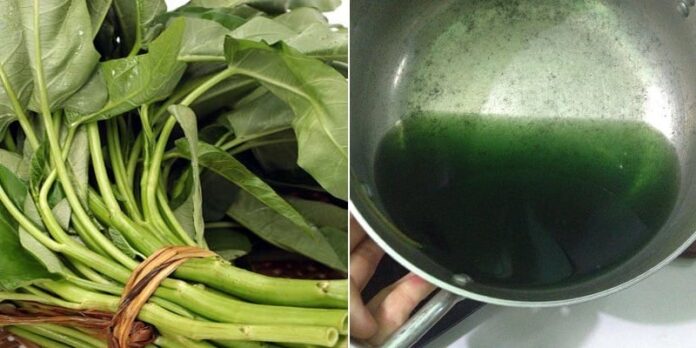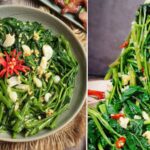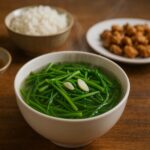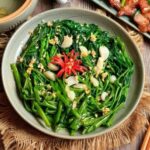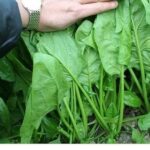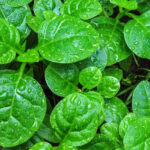Water spinach is a familiar vegetable, often appearing on the dining tables of Vietnamese families. However, not many people are aware that this vegetable is prone to being sprayed with pesticides or growth stimulants to enhance its green appearance. If consumers are not careful, their health may be at risk. Here are some signs to look out for to identify water spinach that has been treated with chemicals – be vigilant to protect your family’s health.
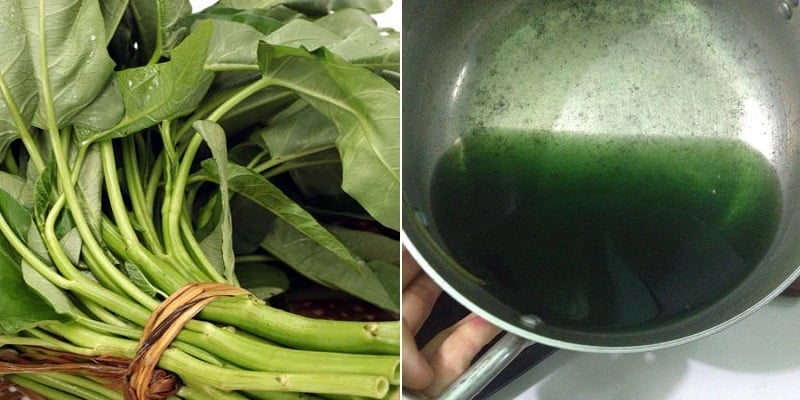
1. Abnormally lush green leaves
If the water spinach leaves appear unnaturally vibrant green and glossy, proceed with caution. Naturally grown water spinach usually has a light or moderate green color and is not overly shiny. The intense green color could indicate the use of growth stimulants or chemicals to enhance the color.
2. Thick, crispy stem but hollow inside
Water spinach that has been pumped with chemicals tends to grow rapidly, resulting in abnormally thick stems. When snapped, it produces a crisp sound, but the inside is hollow. In contrast, organically grown water spinach usually has thinner, firmer stems that are not hollow.
3. Large, thick leaves that don’t wilt when exposed to air
Typically, water spinach, when left out in the open air for 2-3 hours after harvesting, will show slight wilting. However, if the vegetable remains fresh and green with large, thick leaves as if freshly cut, it is highly likely to have been treated with chemicals to preserve its freshness.
4. Unusual or strong odor
If the water spinach emits an unusual chemical-like or strong pungent odor instead of the natural mild fragrance of the vegetable, it’s best to avoid it. Organically grown water spinach should have a gentle, pleasant aroma that is not overpowering.
5. Doesn’t release slime or wilt when soaked in water
A simple test is to soak the water spinach in clean water for 15-30 minutes after purchasing. If the vegetable doesn’t release any slime, change the water color, or wilt – it might have been treated with preservatives or pesticides.
6. Abnormally rapid growth during the rainy season
Water spinach typically grows slower during the rainy season due to reduced sunlight. If you notice an abundance of overly green and thick water spinach in the market during this period, be suspicious of possible growth stimulant usage.
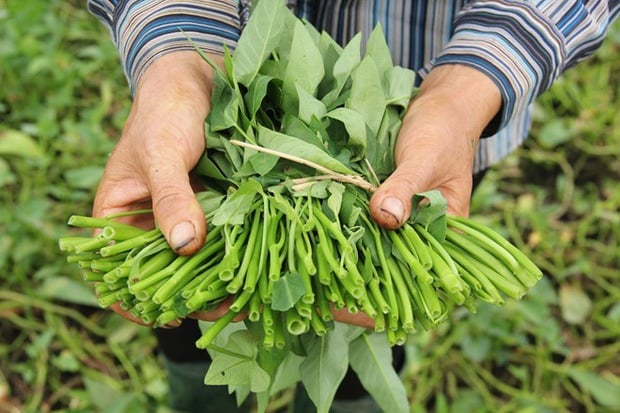
Smart tips for choosing safe water spinach
To avoid purchasing chemically treated water spinach:
– Opt for naturally green leaves that are not overly shiny, with moderately thick stems. A few minor insect bites on the leaves are a good sign.
– Smell the vegetable; it should have a mild, pleasant aroma, not a strong or strange odor.
– Wash thoroughly with diluted salt water or soak for 10-15 minutes. Alternatively, use a specialized vegetable wash to reduce chemical residue.
– Source your water spinach from reputable supermarkets or organic vegetable shops, avoiding untraceable sources from open markets.

